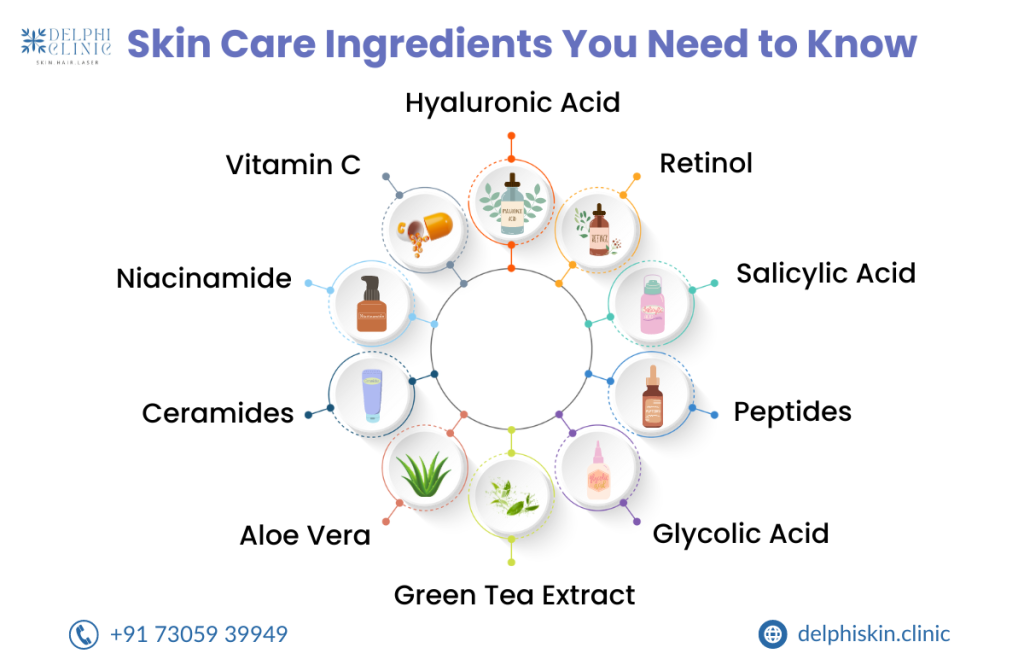When it comes to achieving healthy, radiant skin, finding the best skincare for sensitive skin can be a challenging yet rewarding journey. Sensitive skin requires special attention and care to avoid irritation and maintain its natural balance. In this article, we’ll explore the best skincare for sensitive skin, covering essential tips, recommended products, and effective routines to help you achieve your skincare goals. Let’s dive in and discover the secrets to keeping your sensitive skin happy and healthy.
What is Sensitive Skin?
Sensitive skin is characterized by its tendency to react adversely to various environmental factors, skincare products, and even stress. Common symptoms include redness, itching, burning, and dryness. Understanding the nature of your sensitive skin is the first step in finding the best skincare for sensitive skin.
Common Triggers
Identifying and avoiding common triggers is crucial for managing sensitive skin. These triggers can include:
- Harsh Chemicals: Ingredients like sulfates, parabens, and synthetic fragrances can cause irritation.
- Environmental Factors: Extreme temperatures, pollution, and UV exposure can exacerbate sensitivity.
- Lifestyle Choices: Stress, diet, and lack of sleep can impact skin health.

Types of Sensitive Skin
Sensitive skin can manifest in various forms, each requiring specific care and attention. Understanding the different types of sensitive skin clinic help tailor your skincare routine to meet your unique needs. Here, we’ll explore the main types of sensitive skin and provide tips on how to manage each one effectively.
Naturally Sensitive Skin
Naturally sensitive skin is often genetic, characterized by thin, delicate skin prone to redness and irritation. This type of skin reacts easily to environmental factors and skincare products. To manage naturally sensitive skin, use gentle, hypoallergenic products and avoid harsh exfoliants and alcohol-based items. Keeping skincare routines simple and consistent is crucial. Additionally, protect your skin from extreme temperatures and UV exposure to minimize irritation.
Environmentally Sensitive Skin
Environmentally sensitive skin reacts to factors like pollution, weather changes, and UV radiation. Individuals with this type of skin often experience dryness, redness, and irritation during seasonal changes or in polluted areas. To care for environmentally sensitive skin, use barrier-repairing moisturizers with ceramides and incorporate antioxidants like vitamin C to combat environmental damage. Daily sunscreen application is essential to protect against UV rays. Consider using air purifiers to reduce indoor pollutants that may affect your skin.
Reactive Skin
Reactive skin has immediate reactions to certain ingredients or products, displaying symptoms such as redness, itching, and burning upon application. To manage reactive skin, always perform patch tests before using new products. Avoid known irritants like fragrances, dyes, and sulfates, and choose products specifically formulated for sensitive or reactive skin. Introduce new products gradually to monitor your skin’s reactions and adjust your routine accordingly.
By understanding and identifying your type of sensitive skin, you can adopt a skincare routine that effectively addresses your unique needs, helping to maintain healthy and calm skin.
Best Skincare Routine for Sensitive Skin
Creating a skincare routine tailored to sensitive skin involves selecting products that soothe, hydrate, and protect without causing irritation. Here, we’ll outline the best skincare for sensitive skin, step by step.
Cleansing
A gentle cleanser is the foundation of any skincare routine. Look for products that are free from harsh chemicals and fragrances. Opt for hydrating and soothing ingredients like aloe vera, chamomile, and glycerin.
- Cetaphil Gentle Skin Cleanser
- La Roche-Posay Toleriane Hydrating Gentle Cleanser
- Cleanse twice daily, morning and night.
- Use lukewarm water to avoid stripping the skin of natural oils.
Toning
Toners can help restore the skin’s pH balance and prepare it for further treatment. For sensitive skin, choose alcohol-free toners with calming ingredients.
- Thayers Witch Hazel Alcohol-Free Toner with Aloe Vera
- Avene Gentle Toning Lotion
- Apply toner using a cotton pad or your hands, gently patting it onto the skin.
- Avoid toners with astringents or high alcohol content.
Moisturizing
Hydration is crucial for maintaining the skin’s barrier function and preventing dryness and irritation. The best moisturizer for sensitive skin should be lightweight, non-comedogenic, and packed with soothing ingredients.
- Neutrogena Hydro Boost Gel-Cream
- Vanicream Moisturizing Cream
- Apply moisturizer immediately after cleansing and toning to lock in hydration.
- Look for products with ceramides, hyaluronic acid, and niacinamide.
Sun Protection
Sunscreen is a non-negotiable part of the best skincare for sensitive skin. Choose a mineral-based sunscreen with zinc oxide or titanium dioxide, as they are less likely to cause irritation.
- EltaMD UV Clear Broad-Spectrum SPF 46
- La Roche-Posay Anthelios Mineral Sunscreen SPF 50
- Apply sunscreen every morning, even on cloudy days.
- Reapply every two hours if you are outside for extended periods.
Best Cream for Dry Skin Daily Use
For daily use, the best cream for dry skin is CeraVe Moisturizing Cream. It contains essential ceramides and hyaluronic acid to restore the skin’s natural barrier and retain moisture. This non-greasy, fragrance-free formula is suitable for sensitive skin and provides long-lasting hydration. Another excellent option is Vanicream Moisturizing Cream, which is also free from dyes, fragrance, and other common irritants, making it ideal for daily use on dry, sensitive skin. Both options help keep your skin soft, smooth, and well-hydrated throughout the day.
Best Ingredients for Sensitive Skin
Selecting the right ingredients can make a significant difference in managing sensitive skin. Here, we’ll highlight some of the best ingredients that are gentle yet effective.
Soothing Agents
Soothing agents help calm irritated skin and reduce redness and inflammation.
Key Ingredients
- Aloe Vera: Hydrates and soothes.
- Chamomile: Reduces inflammation and irritation.
- Centella Asiatica (Cica): Promotes healing and calms the skin.
Hydrating Agents
Hydrating agents ensure the skin retains moisture, preventing dryness and flakiness.
Key Ingredients
- Hyaluronic Acid: Attracts and retains moisture.
- Glycerin: Humectant that keeps skin hydrated.
- Ceramides: Strengthen the skin barrier.
Anti-Inflammatory Agents
These agents help reduce inflammation and soothe sensitive skin.
Key Ingredients
- Niacinamide: Reduces redness and inflammation.
- Colloidal Oatmeal: Soothes and protects.
- Allantoin: Calms and heals.
Best Practices for Managing Sensitive Skin
In addition to using the best skincare for sensitive skin, adopting certain practices can help manage sensitivity and prevent flare-ups.
Patch Testing
Always perform a patch test before introducing a new product to your routine. Apply a small amount to a discreet area and wait 24-48 hours to check for any adverse reactions.
Gentle Application
Be gentle when applying skincare products. Avoid rubbing or tugging at the skin, as this can cause irritation.
Avoid Over-Exfoliation
Exfoliating can help remove dead skin cells, but over-exfoliation can damage the skin barrier. Use gentle exfoliants and limit exfoliation to once or twice a week.
Consistent Routine
Stick to a consistent skincare routine to help your skin adjust and benefit from the products you use. Avoid frequently changing products, as this can lead to irritation.
Best Moisturizer for Dry Skin Under 300
Finding an effective and affordable best moisturizer for dry skin under 300 can be challenging, but there are great options under 300 rupees.
One standout product is the Simple Kind to Skin Replenishing Rich Moisturizer. Priced affordably, this moisturizer is formulated with glycerin and borage seed oil to provide intense hydration without irritating sensitive skin. It’s free from artificial perfumes, colors, and harsh chemicals, making it perfect for daily use.
Another excellent choice is the Nivea Soft Light Moisturizer, which is rich in Vitamin E and jojoba oil. It provides deep moisture while being light on the skin, ensuring it remains hydrated and soft throughout the day. The non-greasy formula is quickly absorbed, making it suitable for all skin types, including sensitive skin.
Both these moisturizers offer great value for money, ensuring your dry skin stays nourished and smooth without breaking the bank.
Conclusion
Best skincare for sensitive skin involves selecting gentle, soothing products and adopting practices that protect and nourish your skin. By understanding your skin’s unique needs and choosing the right ingredients, you can maintain a healthy, radiant complexion. Remember to perform patch tests, avoid common irritants, and follow a consistent routine. For those with dry skin, look for the best cream for dry skin daily use and the best moisturizer for dry skin under 300 to keep your skin hydrated and protected.




